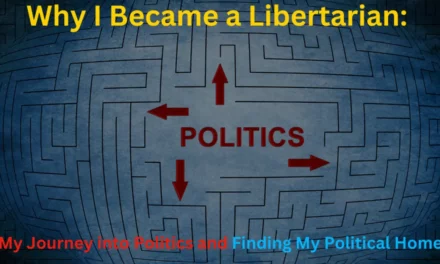In my previous article I outlined how a two-tiered system of rights came about in the United States where enumerated rights are protected a bit more vigorously then unenumerated rights such as the right to profit, work, travel, and family. Also, in a previous article, I highlighted how courts have failed to protect unenumerated rights via the Ninth Amendment. In this article, I highlight how courts have failed to protect unenumerated rights via another logical avenue using the Fourteenth Amendment. Instead, courts have replaced the Ninth Amendment and Fourteenth Amendment with a doctrine called Substantive Due Process whose purpose is to protect rights. Unfortunately, Substantive Due Process has done little to protect unenumerated rights.
The 1873 the Slaughterhouse cases were controversial to say the least. The Supreme Court held the city of New Orleans could produce a law which would monopolize the butcher industry to prevent cholera cases. At first glance the New Orleans solution sounds reasonable, the Court merely wanted to protect the safety and wellbeing of citizens from the unhealthy butcher practices of dumping waste into the drinking water. However, does the solution of providing one butcher company a market monopoly choose the least evasive method to achieve its goal of public safety? No, closer inspection and commonsense would lead one to think the city did not have to eliminate the rights of dozens of butchers to work a lawful profession. Instead, a law which outlined proper methods for disposing of waste would make more sense than removing the livelihood of hundreds of people.
The FDR administration may have taken a power grab lesson from the city of New Orleans playbook. Whether the crisis brings about public fear over a Great Depression or in the case of New Orleans a public health emergency, governments have learned catastrophes are a great way to garner more political power. The City of New Orleans used a local health emergency to advance its agenda which allowed them to needlessly reduce the rights of individuals and workers. The Slaughterhouse Cases are a classic example of how fear can lead to irrational problem-solving. Some scholars suggest government corruption was the motive behind the law. Nevertheless, corruption or not, the Slaughterhouse Cases was a bad decision which is still precedent.
The Slaughterhouse Cases were disastrous for another reason. Justice Samuel Miller wrote a very convoluted majority opinion which not only denied workers equal rights, the opinion also essentially redacted the Privileges and Immunities Clause from the Fourteenth Amendment. Miller held a very narrow reading of the Privileges and Immunities Clause to imply the sole focus of the amendment was for equal rights for freed slaves, but not equal rights for white men or women denied the right to work in the Slaughterhouse Cases. Furthermore, Miller erroneously concluded the Fourteenth Amendment only protected privileges and immunities for national citizenship, but not rights specific to state citizenship such as those rights found in the Bill of Rights or identified in cases such as Corfield v. Coryell. Corfield will be addressed in my next article.
In my opinion, there should not be any distinction between the rights protected by both national and state citizenship. The Citizenship Clause of the Fourteenth Amendment states, “All persons born or naturalized in the United States and subject to the jurisdiction thereof, are citizens of the United States and of the State wherein they reside.” The Citizenship Clause seems to suggest state and national citizenship are synonymous. Unfortunately, 600,000 Americans died in the Civil War to draft the Fourteenth Amendment and Miller inexplicably took measures in his own hands to provide an erroneous construction of the Fourteenth Amendment which basically redacted the Privileges and Immunities Clause whose purpose was to identify unenumerated rights worthy of constitutional protection.
To compensate for the egregious error in the Slaughterhouse Cases (and ignoring the Ninth Amendment) the Court would invent a flawed doctrine called Substantive Due Process in the 1930s to both identify and protect fundamental rights. Substantive Due Process uses the Due Process Clause of the Fourteenth Amendment instead of the redacted Privileges and Immunities Clause to identify rights. The original purpose of the Privileges and Immunities Clause was intended to identify fundamental rights. On the other hand, the original purpose of the Due Process Clause was to enforce and protect all fundamental rights. Presently, Substantive Due Process incorrectly uses the Due Process Clause to both identify and protect fundamental rights. For some reason, the Supreme Court felt compelled to invent a new doctrine instead of electing to use the Ninth Amendment or to overrule the Slaughterhouse Cases and reinstate the Privileges and Immunities Clause. Instead of cleaning up their mess, the Court made the process of protecting rights messier.
Substantive Due Process has achieved some positive results. However, Substantive Due Process is part of an era that had done a great disservice to unenumerated rights. The era of judicial restraint permitted what is referred to as the police power take to hold in states. The Court would rule in favor of the “state police power” by refusing to use Substantive Due Process to protect unenumerated rights or strike down state laws (judicial restraint) that would routinely experiment with and violate unenumerated rights such as the right to work. The right to work came under assault during the FDR presidency using various labor laws that prevented a farmer from growing wheat on his own farm to feed his family and livestock, jailed a grocer for selling milk for under 9 cents a quart, or prevented a company from selling filled milk beyond state lines.
Law scholars such as Randy Barnett and Evan Bernick believe the Fourteenth Amendment even without the Privileges and Immunities Clause became the gem of the Constitution. Perhaps, but only because Chief Justice Marshall’s ruling in Barron v. Baltimore incorrectly held the Bill of Rights did not apply to the states. Barron v. Baltimore coupled with the ignorance of jurists and politicians led to the redaction of the true gem of the Constitution: The Ninth Amendment. If the Bill or Rights (including the Ninth Amendment) were applied to the states, the Fourteenth Amendment’s Privileges and Immunities Clause would have been a redundant amendment clause. Nevertheless, the protection of the unenumerated rights of the people would be in much better shape if either the Privileges and Immunities Clause or the Ninth Amendment was enforced. Recognizing the Ninth Amendment or Privileges and Immunities Clause would make harmful decisions such as the one discussed in Carolene Products (Footnote Four) much harder for activist judges to circumvent. Substantive Due Process has failed to not only protect unenumerated rights, but it has also protected things such as abortion which is not a fundamental right. To be fair, Substantive Due Process did protect the unenumerated right to privacy in Griswold v. Connecticut. Although Griswold was decided correctly, only Justice Arthur Goldberg got the rationale for protecting privacy correct by using the Ninth Amendment and not Substantive Due Process.
The opinions shared here do not necessarily represent the official position of the Libertarian Party. These editorial articles have been submitted by Libertarians across the country, and featuring these topics does not represent an endorsement of the content therein.






I find it odd that this article makes reference to the cases of Alaska and Maine (Quote: "The states of…
A new Hope Biography: Reid graduated from UC Berkeley Engineering with 10 years design experience working on Shuttle, F16, and…
Fascist Deep State World Mystery Secret Brotherhood Babylonian Saturn Negative Energy Code Druid's Greatest Secret Occult https://www.youtube.com/watch?v=KxTYwNADspM
Thanks for helping elect this right wing carpet bagger. Can’t wait!
I may have to change my affiliation with the lp after reading about an assassination post out of New Hampshire!…